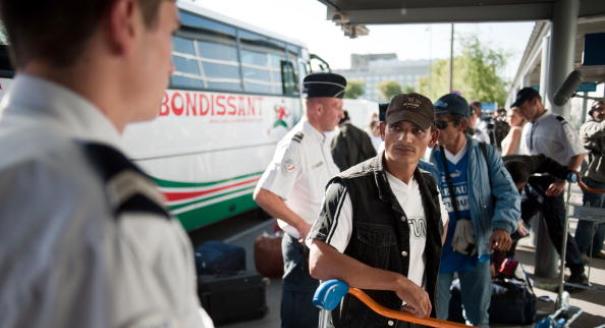When Poland and seven other countries in Central and Eastern Europe joined the EU in 2004, hundreds of thousands of highly motivated young people headed westward.
They were willing to work long hours and do difficult jobs—but that wasn’t to everybody’s liking. Poles, in particular, coming from Eastern Europe’s most populous nation, were often accused of stealing jobs from locals in the host countries.
Yet, over time, Poles set up local communities, newspapers, and schools. Those who returned to Poland could afford better housing and better education for themselves and their children. In retrospect, that wave of migration is a great example of how an open and united EU benefits everybody.
Now, a decade later, populists and anti-immigrant parties in many Western European countries have turned their attention to Bulgarians and Romanians, who, as of January 1, are allowed to work without restrictions in any EU country.
British tabloid newspapers have been virulent in their criticism of Bulgarians and Romanians, accusing them of milking the UK’s social welfare system. In Germany, Chancellor Angela Merkel’s conservative bloc is playing the populist card too. Elmar Brok, the Christian Democratic chairman of the European Parliament’s foreign affairs committee, suggested that a fingerprint system be introduced in order to monitor those receiving benefits.
This discrimination of Bulgarians and Romanians is shameful and hypocritical.
Ever since Bulgaria and Romania joined the EU in 2007, German recruitment agencies have been scouring both countries to seek medical and nursing staff for German hospitals and retirement homes. Engineering and high-tech professionals have been highly sought after, too.
There were no complaints, then, when many of the best and the brightest left Bulgaria and Romania to seek more opportunities and better salaries in Germany and elsewhere. Nor were concerns expressed about the effects of this shocking brain drain of motivated people on the two Eastern European countries. Over the last ten years, Romania’s population has fallen by 12 percent to under 18 million.
So why the furor now? The main reason is that since January 1, internal EU borders have also fallen for those Romanians and Bulgarians who are far humbler than the graduates who were so eagerly recruited into Western Europe. Now, simple workers too can come and seek their fortune in the West. And most dramatically, judging from populist warnings, members of the Roma ethnic minority are free to travel and try to claim social benefits in Germany, Britain, and other countries.
The underlying message from the populists is that the Roma should not enjoy the same rights as other EU citizens. It’s as if they are not perceived as Europeans citizens, while there is no solace in their own countries, where they suffer institutionalized discrimination. The EU reckons that between 10 and 12 million Roma live in Europe, including in the Balkan countries. An estimated 400,000 Roma live in Bulgaria and 621,000 in Romania.
Reports by the World Bank, Amnesty International, and the Open Society Foundations as well as recent newspaper articles have documented the appalling living conditions the Roma have to endure, not only in Bulgaria and Romania, but also in Hungary, the Czech Republic, and Slovakia.
Many Roma are forced to live in ghettos or slums, without rights or facilities. Rareş Buglea, the head of the youth wing of Romania’s National Liberal Party, recently called for Roma women to be sterilized.
This has caused far less outrage than it should have, because prejudices against Roma are widespread throughout Europe. Roma are frequently considered “outsiders,” “different,” and unable to integrate. They are, therefore, welcome neither at home or abroad.
That echoes the perception of the poor, religious Jews who in the late nineteenth and early twentieth century moved from the ghettos of Eastern Europe to the West. They and the Roma suffered the same fate during the Holocaust. Yet public perceptions about the Roma have remained rooted in prejudice.
Belatedly, the EU has begun to take the Roma issue seriously. It is allocating funds (which the member states should top up) in order to improve housing, infrastructure, and education.
Yet there is increasing evidence that the Romanian and Bulgarian governments and local authorities are not delivering on their side of the bargain. This means that the longer the Roma are marginalized and the longer the discrimination continues in their own countries, the more Roma will be tempted to leave rather than endure such misery and poverty.
For years, the Open Society Foundations, established by the financier and philanthropist George Soros, have been trying to dent the hopelessness and prejudice. The grant-making organization has sought to engender a sense of identity and political awareness among the Roma so that they can have a voice and slowly integrate.
Integrating the Roma community will undoubtedly take time, and perseverance is needed. Self-empowerment with strong social and financial support on the local, national, and EU level is critical. Equally crucial is a sustained public-awareness campaign.
If the EU is to have any meaning as a home for its minorities, then the Roma must be included. It is time to break with this aspect of Europe’s ignominious past.









